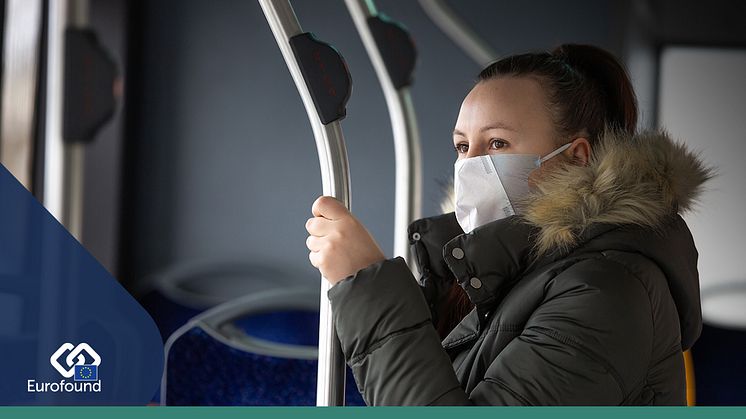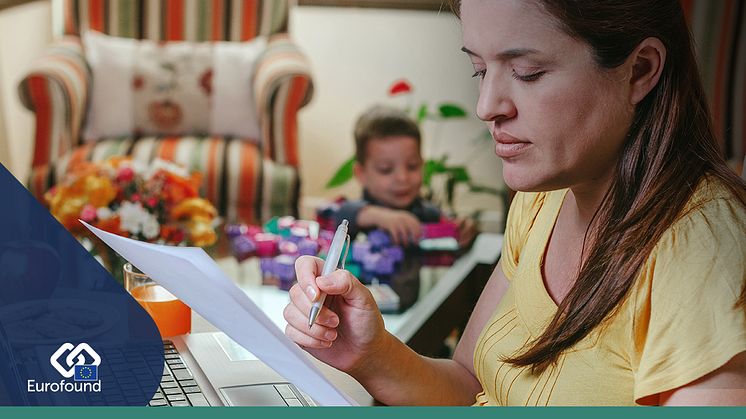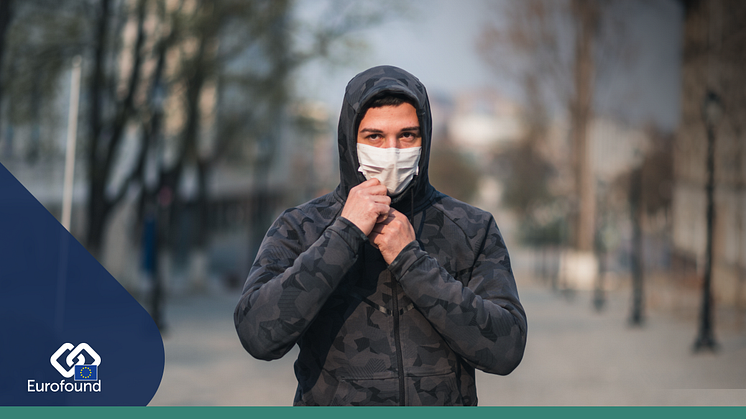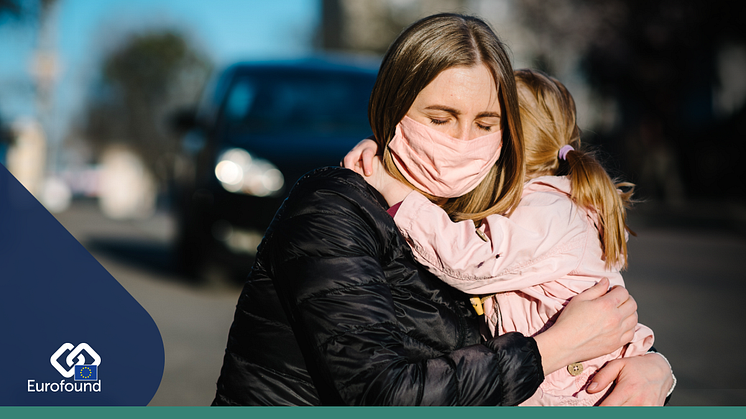
News -
Unemployed, women, young people still biggest losers, but wide-scale COVID-19 impact evident on other population groups
COVID-19 has brought widespread job loss, large-scale reduction in working hours and the decimation of entire sectors of the EU economy. While this has impacted all parts of the population, inter-generational and gender inequalities have been exacerbated, with years of progress diluted in just six months. In addition, traditionally less obvious groups such as the self-employed and middle aged have been exposed to considerable challenges in the first months of the pandemic and of particular concern is the situation of those who have lost their job as a result of the crisis.
These are the most recent results from Eurofound’s unique Living, working and COVID-19 survey, which tracks the experiences of citizens in its April and July editions. The report details the social, economic, labour market, and quality of life findings of a total of 87,477 responses across the EU in the only survey that provides a trend perspective of the situation during the crisis. While it shows a relative improvement in the situation for people in many parts of Europe with regards to working hours, job security, financial situation and levels of optimism between April and July, it also reveals an alarming cumulative social and economic impact of the pandemic on people’s lives that undermines social cohesion in Europe.
Labour market participation has experienced an unprecedented shock and while the rise of telework and the adaptability of certain sectors to remote work have helped to mitigate job losses, at least 1 out of 10 workers in Europe reported having lost their job as a result of the pandemic - with self-employed, young people and those with lower education levels the most affected. Furthermore, while an overall improvement was recorded from April to July, still 1 out of 3 workers indicated a decrease in their working hours and job insecurity remain high, especially among middle-aged respondents and those with fixed-term contracts.
Living conditions of the unemployed appear to be have been hardest hit with over three quarters of people in unemployment reporting having difficulties making ends meet and many feeling depressed and excluded from society. Findings reveal however that financial support measures proved to be effective in supporting those in unemployment, with those who received support not only in a better financial position, but also reported being more optimistic about their future and having greater trust in institutions. However, financial support measures failed to reach a large proportion of the unemployed, who have been reached less often than self-employed workers.
Also, despite improvements in some indicators between April and July, young people and women are still the biggest losers. The experience of young people during the COVID-19 pandemic has been characterised by rising unemployment and plummeting well-being. They report being most likely to feel downhearted and depressed, and less likely to feel positive about themselves than all other age groups. This trend is unprecedented as young people traditionally recorded higher levels of wellbeing than other age groups.
Women, for their part, face not only greater job loss than men, but also major and disproportionate declines in work-life balance for those who manage to stay in employment. In many social and economic indicators young women have been the group most adversely affected. COVID-19 moved employment into the home for millions of people across Europe, leading to a breakdown of work-life balance for many and an exacerbation of already existing domestic inequalities. Women with children under 12 reported the greatest levels of work-life stress, with 38% worrying about their job when not working, 36% reporting being too tired to do domestic work, and 35% saying that their job prevents them giving necessary time to their families.
In addition to these groups, the findings reveal serious concerns for other less obvious groups such as the self-employed, who more often than employees reported that their financial situation was worse than three months ago, particularly if they were solo self-employed.
While the pandemic has hit all European countries, the findings show that the extent of the economic and social impact of the crisis strongly varies among Member States. Due to the strong sectoral nature of the crisis and the different degree of adaptation to telework, southern and eastern Member States have been hit much harder by job loss than other countries. Respondents these countries also reported a much higher probability of losing their job in the next three months, although this declined between the April and July waves of the survey.
Speaking about the results, Juan Menéndez-Valdés, Eurofound’s Executive Director said ‘Despite some improvements linked to a partial re-opening of the economy, the social and economic impacts of COVID-19 continue to be devastating for many sectors and citizens across Europe, most notably for groups with traditional disadvantages in the labour market, such as women and youth, but also for others like the self-employed. As we face signs of a second wave, it will be crucial that EU and national responses continue to support employment, prevent financial hardship and avoid the surge of traditional and new inequalities among Member States and population groups.’
More information:
- Full report: Living, working and COVID-19
- Explore the data: Living, working and COVID-19





